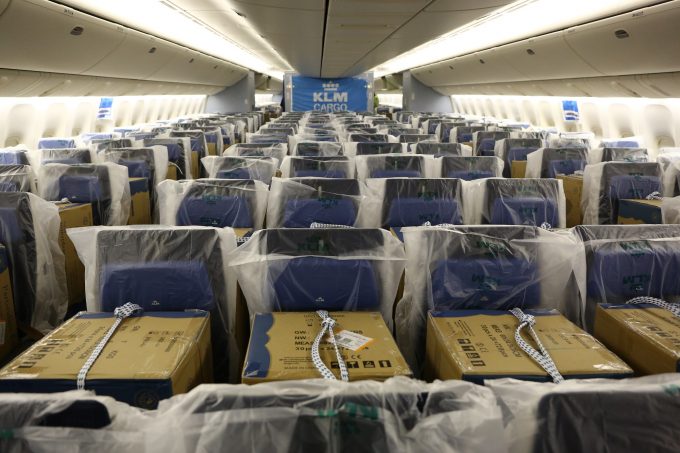Menzies Aviation sees potential as it expands cargo handling in Africa
Menzies Aviation is expanding its cargo handling business in Africa, seeing increasing opportunities in countries ...

What Covid-19 has done to our industry is in certain ways unprecedented, but it seems that the lessons of prior crises have been forgotten completely as airlines and airports struggle to understand what to do. Opportunism, and in some cases desperation, are driving a lot of the C-suite decisions at airlines and airports as they struggle to understand what is next.
Some facts from our own recent observations and client interviews:
It will take a minimum of three years for the industry ...Asia-USEC shippers to lose 42% capacity in a surge of blanked sailings
USTR fees will lead to 'complete destabilisation' of container shipping alliances
New USTR port fees threaten shipping and global supply chains, says Cosco
Outlook for container shipping 'more uncertain now than at the onset of Covid'
Transpac container service closures mount
DHL Express suspends non-de minimis B2C parcels to US consumers
Zim ordered to pay Samsung $3.7m for 'wrongful' D&D charges
Flexport lawsuit an 'undifferentiated mass of gibberish', claims Freightmate

Comment on this article
Robert Song
May 02, 2020 at 4:29 amWell said, and fully agree with your analysis and views Stan!
Ale Pasetti
May 02, 2020 at 7:13 pmOutstanding piece of work.
Edwin Gold
May 03, 2020 at 3:26 amwell well Stan Wraight – thanks for sharing your thoughts, i d say pretty much right on the mark…
ED GOLD / PACE PACIFIC AIR CARGO EXPRESS INC – the last time we met in Edmonton Alberta – 1983 ? ewgyvr@gmail.com
PHil Taylor
May 04, 2020 at 1:09 amWell written and objective. A very big opportunity awaits the airlines. Which airline will have first movers status?
Michael Culme-Seymour
May 04, 2020 at 3:12 pmGreat article Stan, one of the most conclusive and comprehensive I have seen in a while. There will of course be the usual suspects, airlines who will receive massive bail-outs to keep them running – which could make sense for those well run and pre-Covid profitable airlines, but how about those who were poorly managed before hand ? We have seen many carriers take innovate and pro-active decisions, mostly converting passenger aircraft to cargo planes… where are all those 747- combis ? What about the come back of the 737- quick change that Lufthansa pioneered in the 90s to move their express Flash cargo at night. Other airlines sit on the ground and wait for the bailout to come …
What about the question of converting some of the pax aircraft to full cargo conversions – this would bring relief to both Airbus and Boeing securing some jobs – and it would help fulfil the massive full cargo aircraft fleet that is so desperately needed now.
To your point – we need more cargo in the boardrooms !
Massimo Roccasecca
May 05, 2020 at 8:32 amA complete, understandable and, most important, independent analisys.
i agree with Mr. Wraight 99%.
the 1% is simply cos i hope it will take a bit less than 3 years for the industry to recover.
In the scenario so well described, i am confident that the huge role cargo-specialized airports will have in the next future (especially vs. Megahubs) will emerge more.